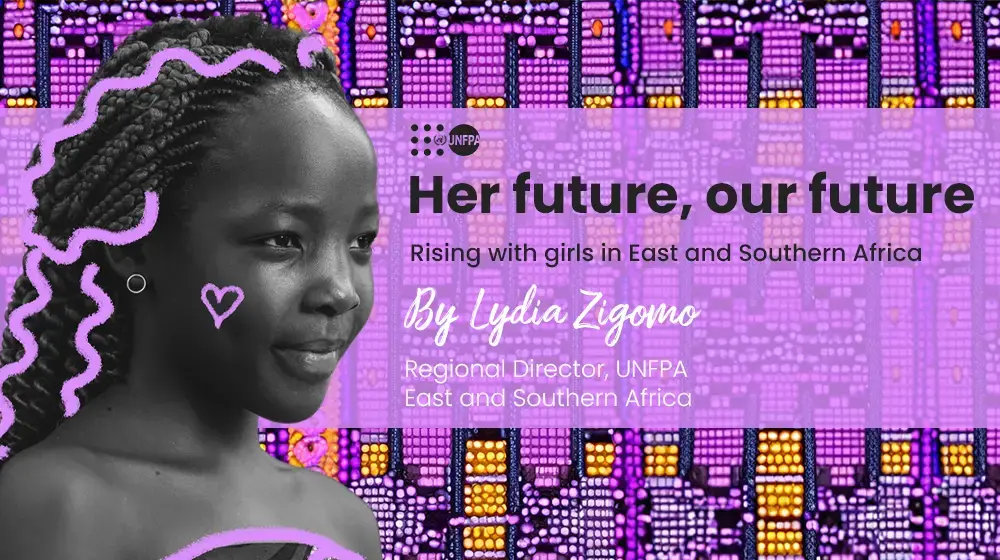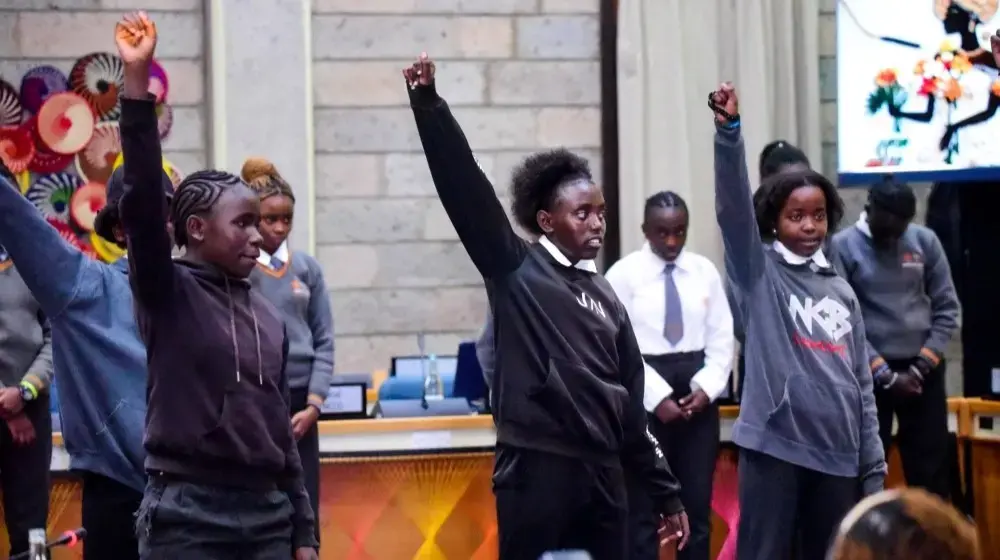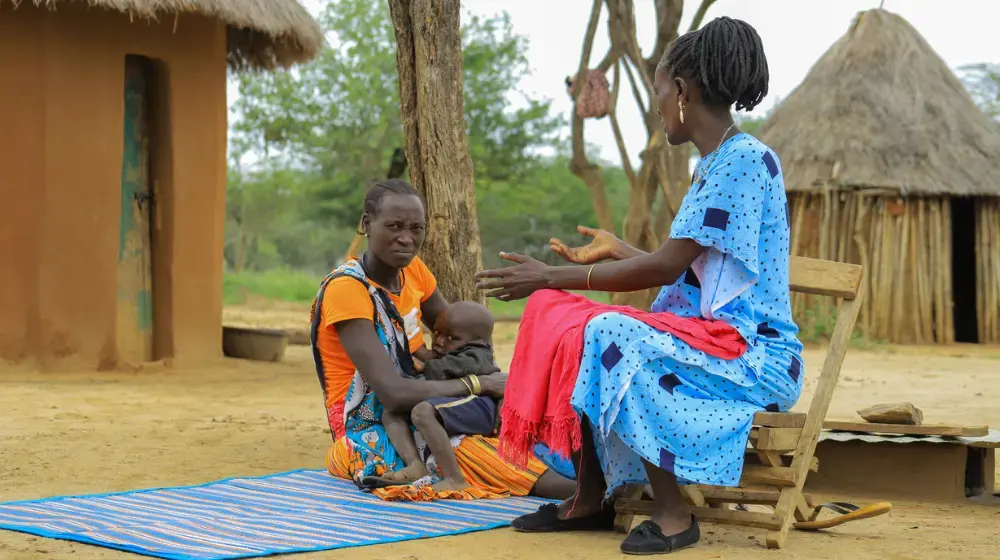LUBUMBASHI, Democratic Republic of the Congo—One of 11 children, Ruth Kalenga’s father died when she was in her second year of high school. During this period, she fell pregnant. “We suffered with my child,” she said.
In the DRC, her story is not unique. The large country has more than 21 million adolescents aged 10 to 19 years old (National Institute of Statistics). The median age at first sexual intercourse is 16 years, and 27 per cent of women aged 20 to 24 have given birth by age 18, and almost 5 per cent by age 15 (Demographic and Health Survey 2013- 2014).
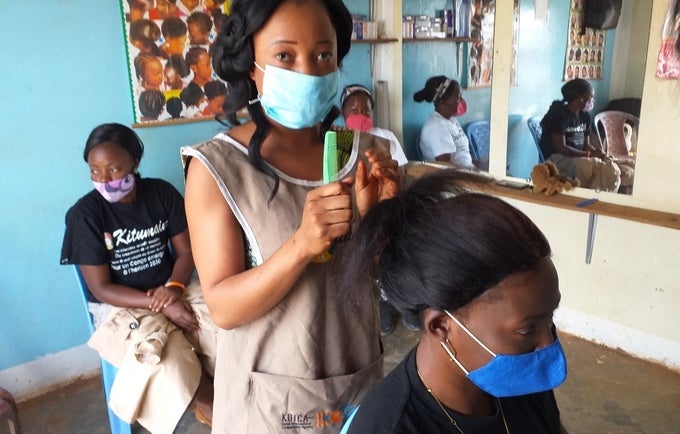
Adolescence is a crucial period. For many girls in the DRC, it is riddled with challenges that can derail their future: child marriage, unwanted pregnancy, sexual exploitation and sexual abuse, potentially leading to abuse of drugs and alcohol, and sexually transmitted infections including HIV. Many drop out of school as a result.
To give these girls hope and restore their dignity, the Government of the DRC established the Kitumaini Initiative, with support from UNFPA and UNESCO.
When Ruth heard about Kitumaini, she enrolled at the Raihman Professional Training Centre and received free nine-month training in aesthetics, manicures and pedicures. This enabled her to find employment.
I am a [role] model for many girls in my neighbourhood. I am [once] again proud of myself and hopeful for the future!
“Thanks to this training, I found a job in a hair salon (in Lubumbashi), where I earn $40 a month, which I use to take care of my son and myself. I am a [role] model for many girls in my neighbourhood. I am [once] again proud of myself and hopeful for the future!” she said.
Using innovation to reach vulnerable girls
Now 17 years old, Ruth was one of 1,100 single, unemployed young mothers who enrolled in one of the 13 vocational training centres that have been rehabilitated, equipped and rendered functional, thanks to the Kitumaini initiative.
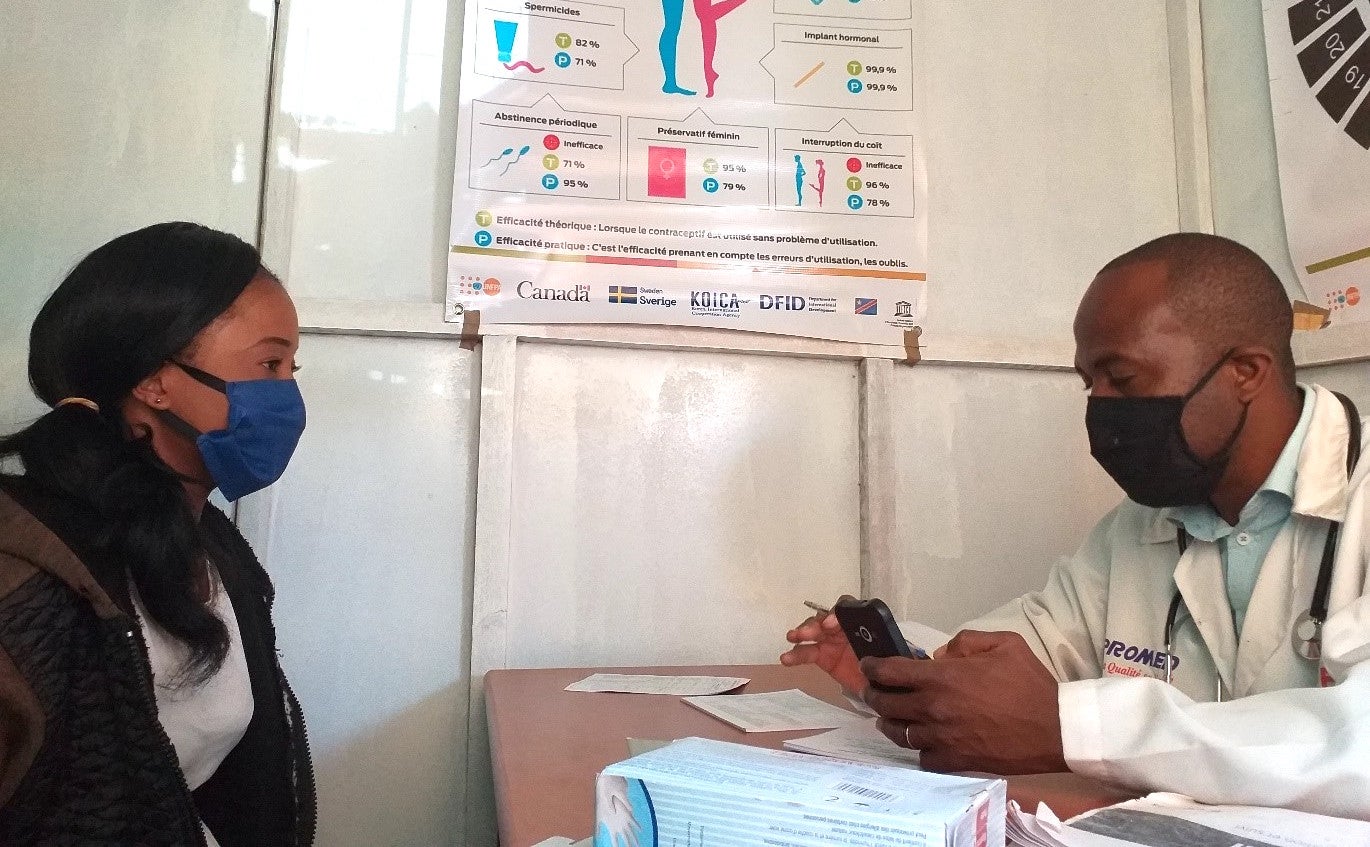
Launched in 2018, Kitumaini (meaning hope in Swahili) targets adolescent girls. It aims to build the economic capacity of highly vulnerable adolescent girls by giving them the means to stay in school for as long as possible. In class, they receive comprehensive sexuality education and life skills training to make their own informed decisions. They are given access to quality sexual and reproductive health information and services, at a nearby facility.
For those like Ruth who find themselves excluded from the education system, the project helps them to learn a trade and assists with their socio-economic reintegration. It also facilitates their access to sexual and reproductive health services. In so doing, they are empowered to enjoy their right to health, well-being and dignity.
Kitumaini is supported by communities, schools, vocational training centres and health structures. It targets three health zones with high numbers of early pregnancy – N’Sele in Kinshasa, Ruashi in Haut-Katanga, and Karisimbi in Goma, North Kivu. The project is funded by the governments of Canada and Sweden, plus KOICA and DFID.
Kitumaini’s results in numbers
To date, 60,000 adolescent girls have accessed quality health care and services adapted to their needs. Comprehensive sexuality education (CSE) has been provided to 18,000 girls and boys aged 15 to 17 years. CSE has been integrated in teaching programmes at 70 secondary schools and 4 vocational training centres. Thirteen vocational training centres for young single mothers have been rehabilitated and equipped, and 1,100 girls have learned a trade while receiving CSE. At 17 health facilities, sexual and reproductive health services that have been adapted to the needs of young people have been integrated into their service package. A Kitumaini card allows adolescent girls to access sexual and reproductive health services for free.
We learned about the menstrual cycle and how to calculate the fertile period, when I knew nothing about it.
In the DRC, comprehensive sexuality education is fundamental to girls’ wellbeing. Yet most of them do not have basic information about their sexuality, even though they are sexually active. Said Ruth: “We learned [about] the menstrual cycle and how to calculate the fertile period, when I knew nothing about it.”
For her and many other girls, Kitumaini has brought positive change. It has empowered them and built self-esteem through the ability to support themselves financially, and at the same time, contributed to the socio-economic development of the country.


